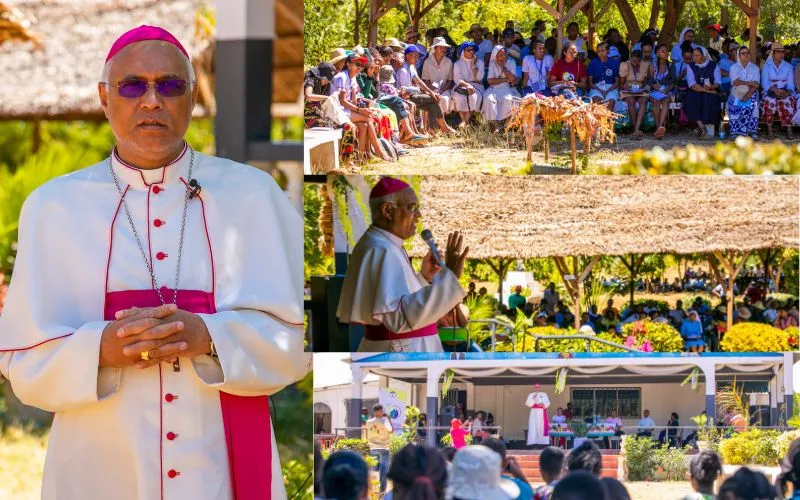Antsiranana, 27 August, 2024 / 8:00 pm (ACI Africa).
Fostering fraternity can go a long way in addressing the negative effects of disunity in families as well as wounds resulting from a life of sin, Bishop Jean Pascal Andriantsoavina of the Catholic Diocese of Antsirabé in Madagascar has said.
In his catechesis to young people on Saturday, August 24, the second day of the 3rd National Eucharist Congress (KEN 2024) that Madagascar’s Catholic Archdiocese of Antsiranana hosted, Bishop Andriantsoavina underscored the need for a “deep, personal commitment to living out fraternity” resulting from participation in Eucharistic celebrations.
Fraternity (Fiavanna in Malagasy) is not just a relationship between people, but also with nature and the entire community,” he said during the Saturday, August 24 catechesis session at Paul VI Major Seminary.
“These bonds are often damaged by sin, especially jealousy and resentment, which are all too prevalent in our society today,” the Malagasy Catholic Bishop further said, adding, “True fiavanna is the remedy that can restore these broken relationships and bring healing to our communities.”
He recommended the “before participating in the Eucharist, we must adopt the attitude of a servant, following the example of Christ,” and added, “The Eucharist teaches us to serve one another without discrimination or exclusion. The Church must be a welcoming place for all, reflecting the inclusive love of Christ.”








